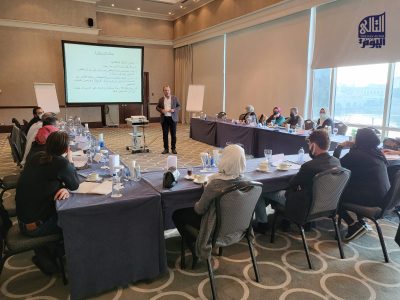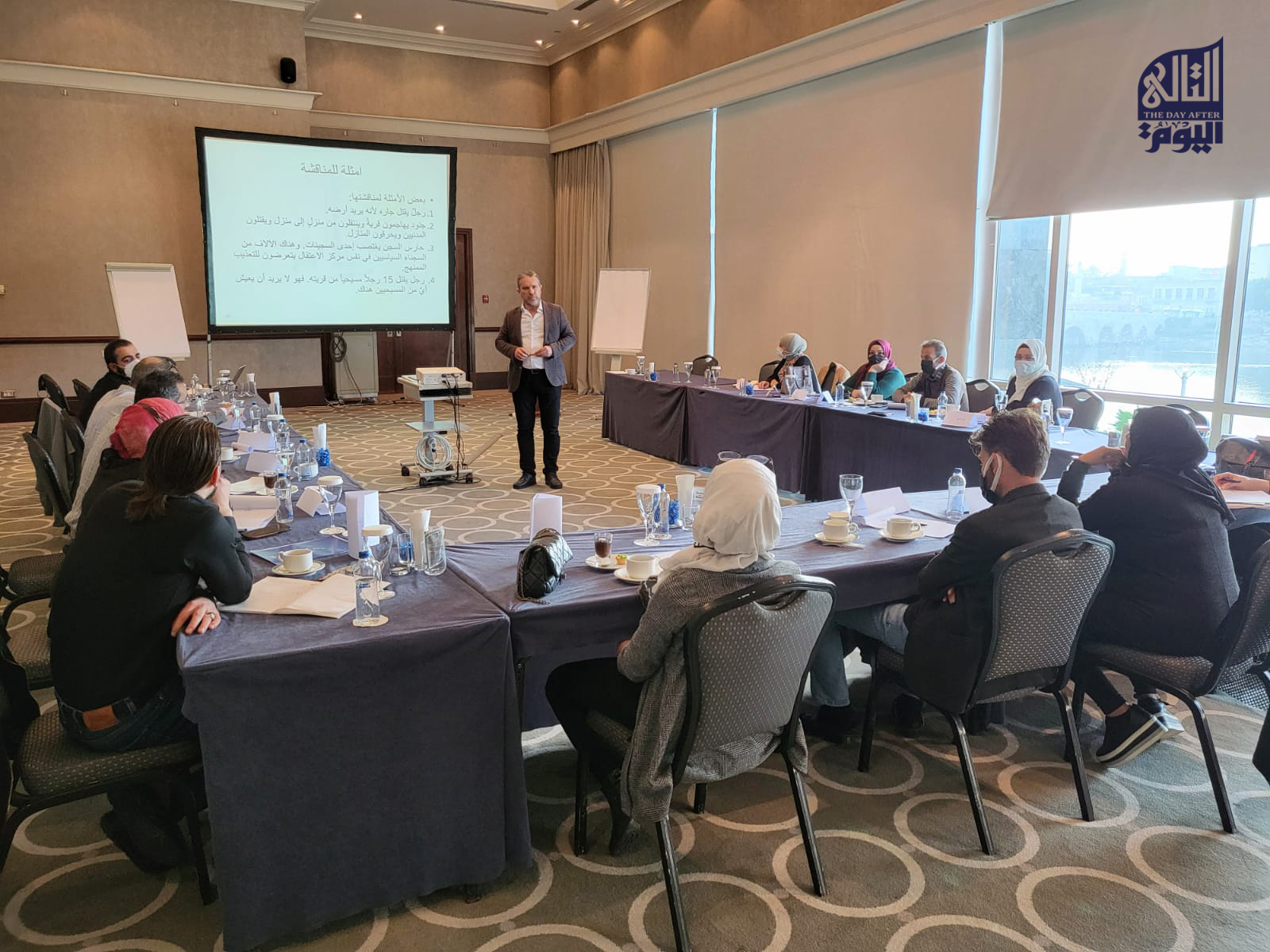
TDA launched several capacity-building and support training in Turkey for survivors of detention in Syria, and the topics/activities covered in the training were as follows:
1- Training on documentation, its importance, risks and psychological safety during documentation.
Integrating the importance of documentation and psychological safety during the documentation process into the training. Trainer Ali Al-Zeer reviewed with 13 survivors the types of documentation, and explained the importance of medical-legal documentation for building prosecution cases to contribute to achieving justice and accountability.
The training also included a legal dimension, and survivors were informed to take certain considerations into account during the documentation process, such as consent, gender, confidentiality, and others. The trainer also explained to the survivors some of the risks of falling into fake and useless documentation.
Additionally, and in the second part of the training, psychologist Nora Ahmed, dealt with the psychological aspect of the documentation process, and educated survivors about the safety plan to be followed pre- and post- any kind of documentation process, and provided them with techniques about self-care in addition to some activities and methods of art therapy. Psychological counseling was also provided, as well as individual support sessions.
2- Training of transitional justice and the role of victims in the process
To raise awareness of the concept of transitional justice, TDA’s Legal Advisor Anwar Al-Majanni, reviewed with 11 survivors the concept of transitional justice, and how transitional justice was defined during the years of conflict, transitional justice mechanisms, and their various angles. Other countries’ experiences in transitional justice were also presented during the training.
The training also illustrated the difference between transitional justice and traditional justice, in order to increase the knowledge of survivors of judicial and non-judicial transitional justice mechanisms and processes, and clarified the role of victims and survivors in the transitional justice process.
3- What are the types of violations and international crimes?
Over the course of 3 days, Legal Advisor Anwar Al-Majanni explained to a group of survivors the difference between the international humanitarian law and the international human rights law, and introduced them to international criminal law and international crimes. The session aimed to increase the knowledge of the survivors on types of international crimes, so they are able to describe the violations they were subjected to.
The trainer also explained the laws that can be applied, and types of courts in the Syrian context to access justice, and raise awareness of accountability mechanisms and other details related to international laws and courts.
